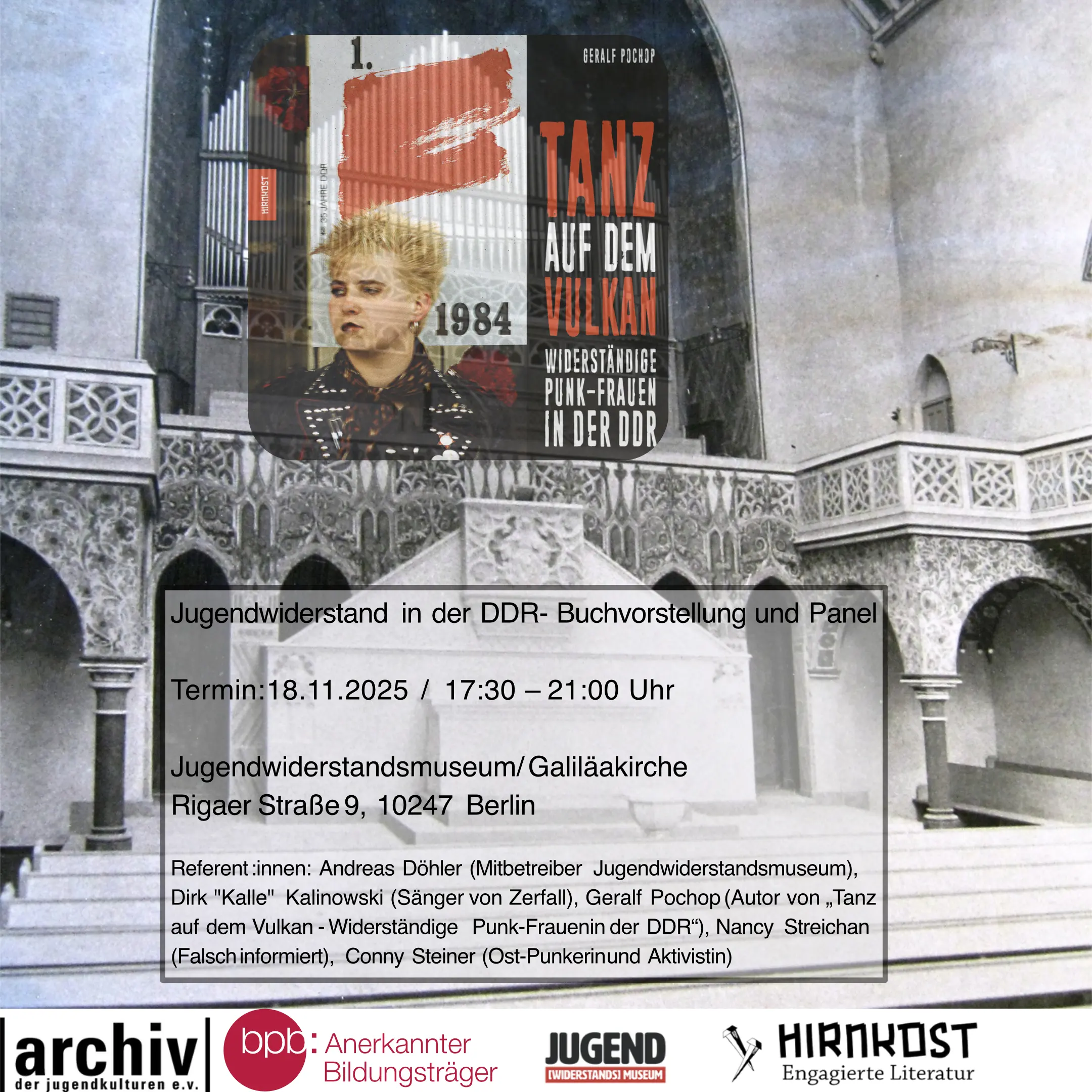Book presentation: “Dance on the Volcano – Resistant Punk Women in the GDR” and panel with the following speakers:
Gerald Pochop (Author of “Dance on the Volcano – Resistant Punk Women in the GDR”)
Nancy Streichan (Misinformed)
Conny Steiner (Eastern punk and activist)
Dirk “Kalle” Kalinowski (singer of Zerfall)
Andreas Döhler(Galilee Church Youth Resistance Museum).
The event series “Youth cultures and protest in transition” of the Berlin “Archive of Youth Cultures” is dedicated to the complex relationships between youth, cultural expression, and resistance. It focuses on how young people throughout history have raised their voices and fought back against social injustices.
A central aspect of this series is empowerment through collective action, whether in the context of neighborhood stories, tenant engagement, or the creative expression of street art and graffiti, which often remain in the shadow of gentrification.
This highlights the importance of young people making their concerns and identities visible through creative and collective action. The tradition of youth protest is as complex as it is dynamic. While older generations often represented the dominant voices in social movements, this has changed with the emergence of movements such as Fridays for Future has changed fundamentally. Young people today no longer act as passive recipients, but actively shape public discourse.
The role of the media plays a crucial role in this, as they significantly influence the visibility and dissemination of youth concerns and cultural expressions.
Another focus of the series is the examination of the Ultras, a youth culture that is often perceived as polarized. They represent not only passionate support for their teams, but also a politicized group that engages with social issues.
Finally, the resistance of young people in the GDR is also addressed, particularly the resistance structures that developed in East Berlin. Here, the importance of community and networking among young people is emphasized, which took place in churches and other social spaces and ultimately contributed to the peaceful revolution of 1989.
This series of events invites you to explore the diverse facets of youth resistance and reflect on their relevance for the present.
